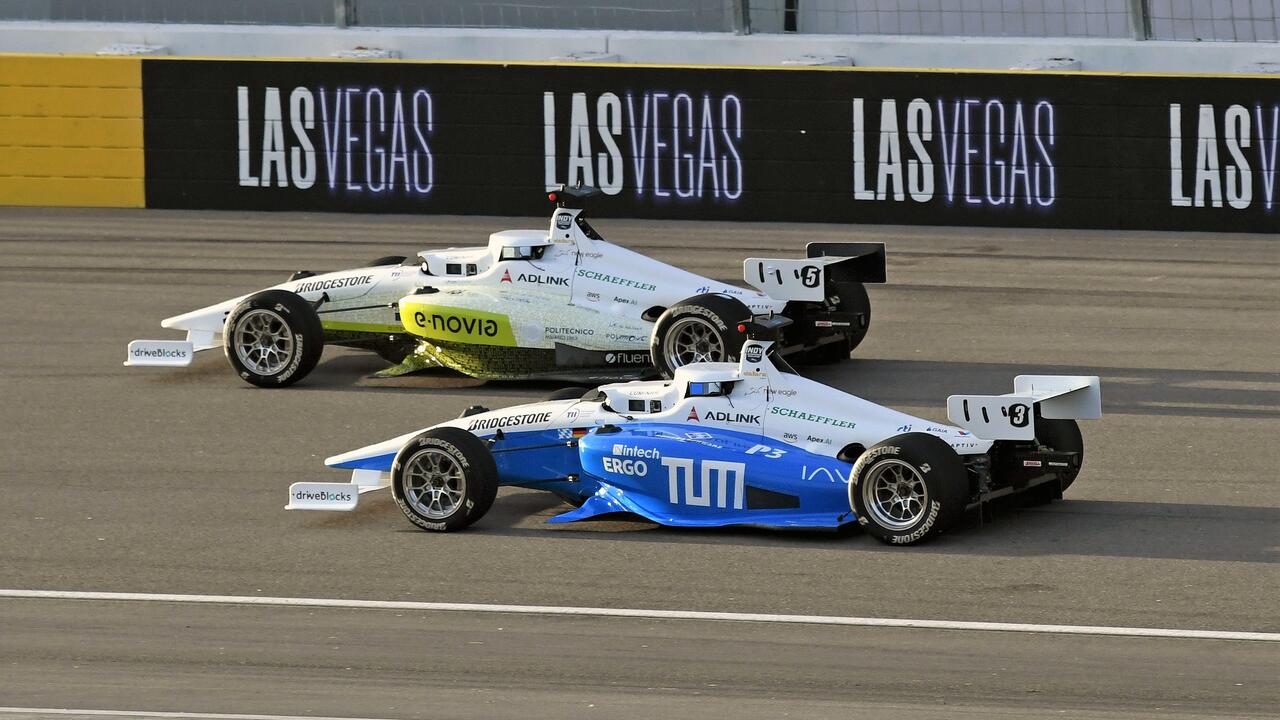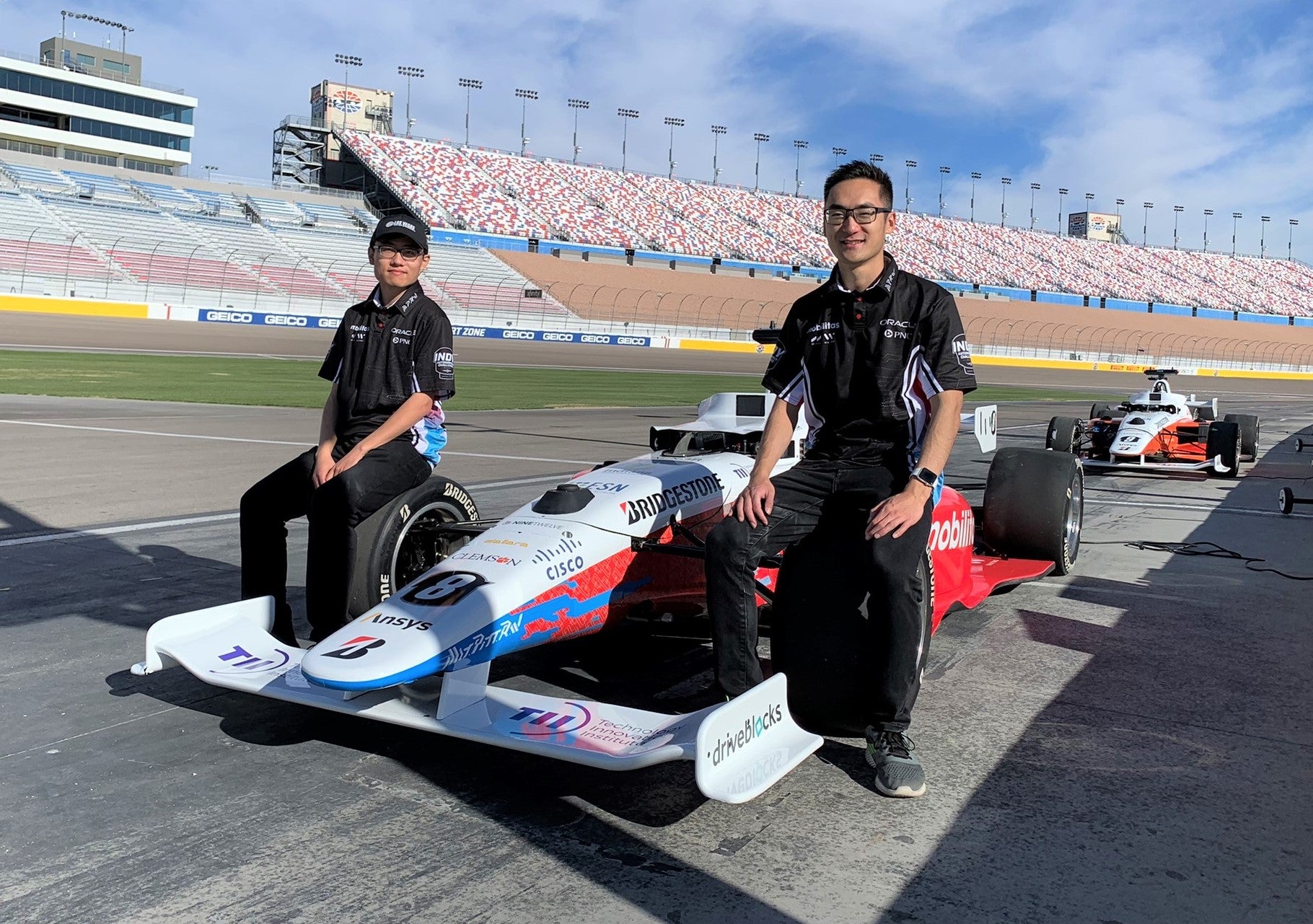
Making a comeback
Grad students miss final, but still record 137 mph top speed at self-driving race in Las Vegas

Grad students miss final, but still record 137 mph top speed at self-driving race in Las Vegas
By Brian Caldwell Faculty of EngineeringA multi-university team featuring two graduate students from the University of Waterloo failed to qualify for the finals Friday of an autonomous racing event in Las Vegas.
But six weeks of preparation by Brian Mao and Ben Zhang still paid off when their million-dollar car recorded a top speed of 137 miles per hour (mph) during a run before the main competition at the Las Vegas Motor Speedway.
The performance built on a disappointing result at the Indianapolis Motor Speedway in October when their car had a GPS malfunction and failed to finish.
"We've made a great comeback from crashing into a wall to successfully completing laps at over 137 mph in only about two months," Mao said.

Waterloo graduate students Ben Zhang (left) and Brian Mao pose with their car in Las Vegas.
The competition in Las Vegas added high-speed passing to the challenge as university teams from around the world pushed the limits of self-driving hardware and artificial intelligence (AI) software.
Five of nine teams qualified for the finals, with PoliMOVE from Politecnico di Milano of Italy and the University of Alabama taking the top prize of US $150,000. It also recorded the top speed of 173 mph.
TUM Autonomous Motorsport from the Technische Universität München in Germany, winner of the first race and US $1 million at Indy, finished second and won US $50,000.
"Today was the real birth of autonomous racing," Professor Sergio Savaresi, team lead of Politecnico di Milano, said in a media release. "The real high-speed multi-agent racing was pushed to its very limits. The research on autonomous cars will certainly benefit from this historic milestone."
Despite their progress since Indy, the Waterloo students and their teammates weren't confident enough in their systems to risk a collision while passing another car at 80 mph, a requirement to qualify for the finals.
The Indy Autonomous Challenge began in 2019 with the goal of advancing self-driving technology and speeding up its commercialization. Teams from more than 40 universities were initially involved, with a series of simulated races leading up to single-car time trials at Indy.
Waterloo entered a small team called WATORACE before teaming up with three U.S. schools – the Massachusetts Institute of Technology, the University of Pittsburgh and the Rochester Institute of Technology - to pool resources and expertise.
Mao earned a degree in mechanical engineering (BASc ’20) at Waterloo and is now pursuing a master’s degree in applied mathematics. Zhang has a degree in computer science (BCS ’20) and is studying for his master’s in electrical and computer engineering.
Team members Kyle Anderson, a software engineering student, and Ryan Larkin, who is studying computer science, have also continued to provide valuable assistance to the racing effort.
Main photo: The two top self-driving cars go head-to-head in the finals at the Las Vegas Motor Speedway.

Read more
Redefining capstone learning by bringing students, faculty and community partners together to tackle real-world challenges

Read more
Here are the people and events behind some of this year’s most compelling Waterloo stories

Read more
From co-op to community, grads offer insights and inspiration for the next generation of students
The University of Waterloo acknowledges that much of our work takes place on the traditional territory of the Neutral, Anishinaabeg, and Haudenosaunee peoples. Our main campus is situated on the Haldimand Tract, the land granted to the Six Nations that includes six miles on each side of the Grand River. Our active work toward reconciliation takes place across our campuses through research, learning, teaching, and community building, and is co-ordinated within the Office of Indigenous Relations.